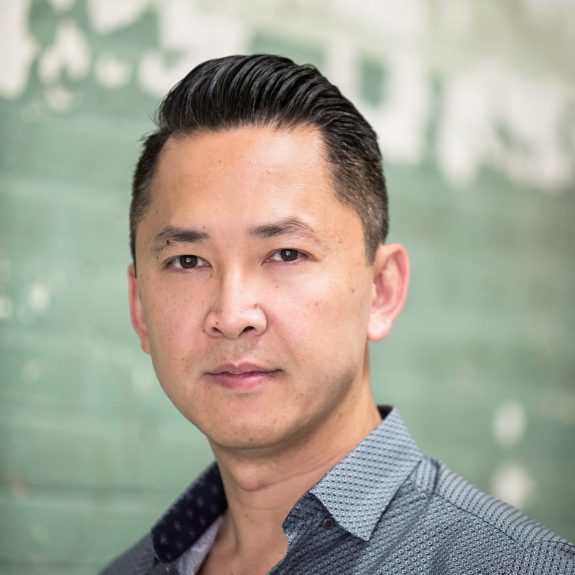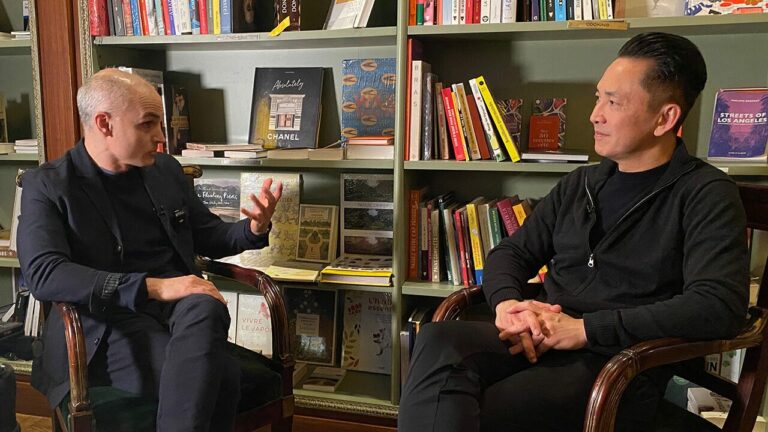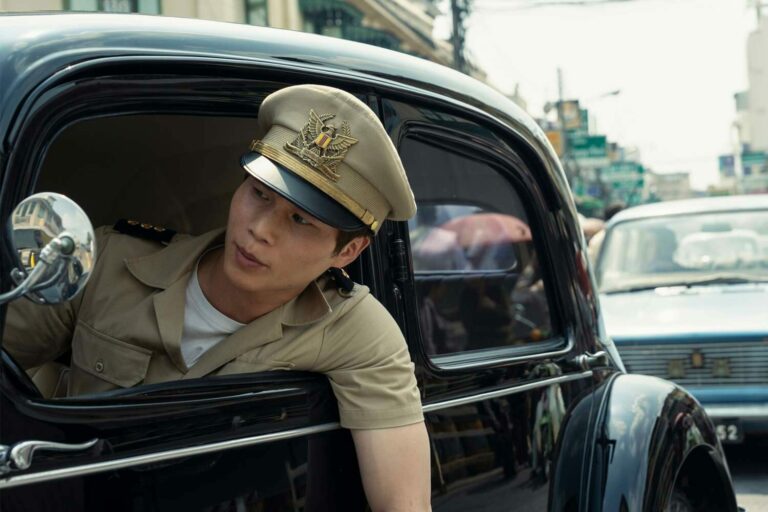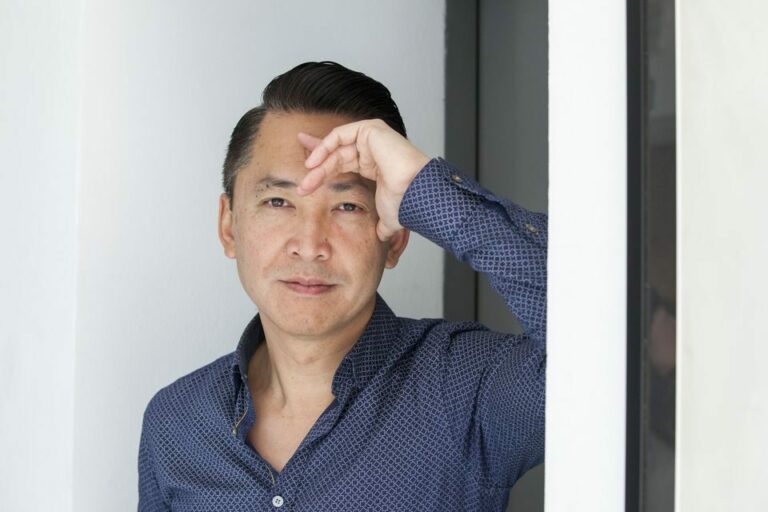Viet Thanh Nguyen discusses The Refugees and his experiences in this interview for KCRW with Amy Ta.
Pulitzer Prize-winning author Viet Thanh Nguyen’s new book “The Refugees” is coming out at a time of heated national discussions around President Donald Trump’s executive orders on immigrants and refugees coming to the United States.
Nguyen, himself, is a refugee. He and his family fled war-torn Vietnam during the 70s and resettled at a refugee camp in Pennsylvania when he was four years old. He says his first real memories were being separated from his parents and sent to live with a white sponsor family.
“The importance of being a refugee stays with me, and the importance of that is it’s different from being an immigrant,” Nguyen tells Press Play.
He explains that an immigrant has the option of coming and going, whereas refugees are forced to flee. “Immigrants, if they depart legally, go through certain kinds of channels. But refugees end up often times on the open seas, or trekking through the wilderness, and spending months or even years, even decades, in refugee camps where they’re barely kept alive.”

How the two groups are perceived is vastly different too. “There’s this idea that we’re a country of immigrants, but we’re not a country of refugees. And refugees arrive with that stigma of being the unwanted.”
Looking back on his personal experience, he says Vietnamese refugees were, in one sense, wanted because the president and Congress permitted them to come into the U.S., but Americans at the time didn’t want to accept Vietnamese and other Southeast Asian refugees from Cambodia and Laos. “We were foreign. We were different. We were the enemy, even if we technically weren’t the enemy.”
Nguyen says he sees historic parallels with President Trump’s executive order banning travelers from seven Muslim-majority countries from entering the U.S. for 90 days, including Syrian refugees. “It’s easy to look at our contemporary moment and provide various reasons why certain populations shouldn’t be let in, obscuring the fact that most of these justifications are based on fear rather than on fact. Syrians have not killed anybody in the United States.”
Nguyen’s “The Refugees” is a collection of short stories about people living between two worlds — how they switch identities and navigate issues of love, family and immigration.
The story “War Years” is based on Nguyen’s own life. The narrator is a young boy whose parents are shopkeepers, and another character named Mrs. Hoa aggressively asks the mother to donate money to her anti-communist cause. He recalls, “We moved from Harrisburg to San Jose in 1978. My parents opened probably the second Vietnamese grocery store in the city. I grew up intimately aware with what it meant to live a hard scrabble life, with my parents working 12-14 hours a day, seven days a week, and every day of the year except Christmas, New Year’s and Easter; and getting shot in an armed robbery on Christmas Eve.”
Nguyen says people in his community were being asked to donate money to the communist resistance, and if someone refused, they were labelled a communist.
In the story, Mrs. Hoa is a blackmailer, and she’s demanding money because that’s the only way she knows how to cope with losing her husband and son to the communists.
“War Years” also sheds light on the alienation that refugees felt among each other after coming to the U.S. Nguyen explains that because the Vietnamese community is so tight-knit, they also know each other’s weakness and vulnerabilities. “The way that manifests itself in the everyday lives of Vietnamese refugees was through things like domestic violence, child abuse, alcoholism, and the phenomenon of home invasions.”
In Nguyen’s own household, his parents said to not open the door to Vietnamese people. One day, a man knocked and was not Vietnamese, so they opened the door. He pointed a gun at the family. Nguyen recalls, “The man said get on your knees. Both my father and I did as ordered, but my mother was the one who just ran screaming past him out the door, and saved our lives, basically. I don’t know what would have happened if she hadn’t done that. He turned around, and my father shoved him out the door, and slammed the door, and locked it behind him, locking my mother out as well.”
In the last story in the book, “Fatherland,” there are two sets of siblings with the same father, and he gives them the same names. One set lives in Vietnam while the other lives in the U.S. One adopts an American name — Vivien — and visits her sibling Phuong in Vietnam. They experience a striking culture clash. Phuong realizes that Vivien’s life is not as glamorous as she envisioned.
Nguyen suggests that those who stay in the homeland and those who are forced to leave often think about the “what could have been.” He says the ones who leave often want to return because they retain a fantastic idea of what the homeland was like. “I’ve known many Vietnamese people in the United States, and they’ve lived here for decades, and they go around saying ‘I’m 100 percent Vietnamese.’ Then they go back home, and they come back and say, ‘I’m a Vietnamese-American.’ ”
Likewise, he says, those in Vietnam hear stories about how wonderful life is in America, and it’s common for Vietnamese-Americans to return to Vietnam and pretend they’re successful.
“I wanted to take that very basic story of sort of comic misperception that is unique not only to the Vietnamese, but to other immigrant groups as well, and see what would happen if it was actually the case that the real identity of this overseas Vietnamese is revealed to her sister who worships her basically, and then has to confront what happens when that illusion is stripped away,” Nguyen says.
Themes of misconceptions, dualities and other people’s perceptions of us are also themes in Nguyen’s debut novel “The Sympathizer,” which earned him the Pulitzer Prize for Fiction. “’The Sympathizer’” takes those themes and blows them up into this grand scale of spy stories and political thriller and war, and all kinds of horrible or great things, depending on your point of view. And ‘The Refugees’ is very much more about the domestic lives of refugees who are not spectacular for the most part, but they’re struggling with these challenges that I think are very human, and are very common to refugee experiences,” he explains.


